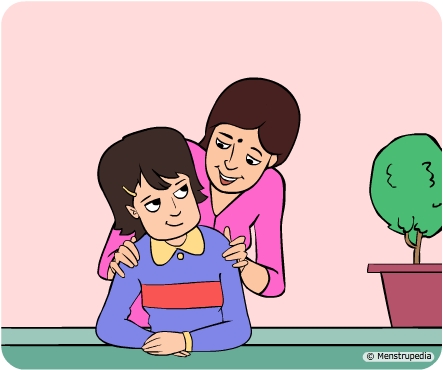When is the right time to talk to my daughter about periods?
Ascertaining one 'right' age for all to start conversations on periods and puberty can be a difficult and sometimes a misleading task, because of the various factors that need to be considered like what 'right age' means, nature of upbringing, the child's ability, peer group influence, her body's response, etc. However, we can make some generalizations on the most appropriate options when the period-talk can be most useful and least scary, based on what has worked in the past. Here are some of these alternatives that can help you decide when best to have the period talk.
Talk as she enters the puberty bracket
Talking to your daughter about the period as and when she nears puberty is one of the most successful and beneficial ways to initiate the conversation if it hasn't been discussed already. Puberty can begin as early as at age 10 for girls, so giving her information as soon as she turns nine is a highly recommended idea.
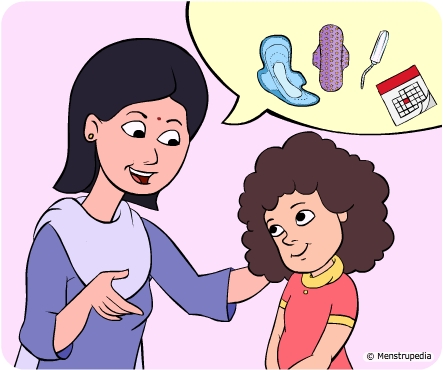
Consider the signs
Another possible method could be to keep an eye on her development. Talk to her as soon as she starts showing signs of growth like a drastic increase in height, breast development, etc. You can break the conversation into smaller ones, pair them up, and have them in advance—for example, when she discusses vaginal discharge, you can also give her an outline of menstruation and emotional changes. This gives more room to align your conversations with your daughter's pace of growth and allows her to understand her body through her experiences. However, make sure you strike a balance between what she needs to know well in advance, and what is better understood on her own timeline.

Look at patterns
If you're well past the nine years' mark, you can still help her be prepared for periods when they come. Remind yourself of when you began to menstruate or patterns of menarche of other women in the family. It is likely that she will also follow similar patterns. Start talking to her when she approaches that age. This can make up for a lost time, and can also clear any incorrect information she might have received.
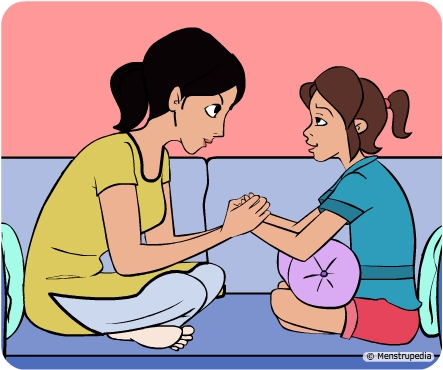
Join the club early
If your daughter is not close to puberty yet, know that there is no such thing as 'too early' to talk. Make use of the relative advantage and sensitise her about periods in small, age-appropriate ways.
Scenario 1
For example, when your six-year-old asks what pads are, instead of brushing off the question, you can say, “When little girls grow up, their body changes. It makes little things called eggs that allow them to have babies if they want to. If they don't, the eggs are thrown out of their body through 'periods'. It happens to all women and will happen to you too when you get older. Sanitary pads are worn so the eggs can leave the body properly.”
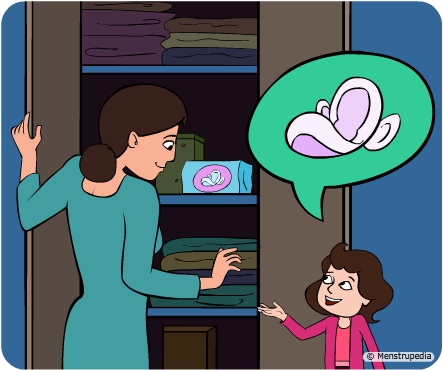
Scenario 2
If your eight years old asks if her older friend is dirty because she doesn't come out to play when she is on her period, you can reply with something like this: “Periods are natural and there is nothing pure or dirty about them, just like there is nothing pure or dirty about chewing or passing urine. Maybe she has cramps or she doesn't feel like playing. Why don't you ask her? Find out if she wants to talk about it if you can help, or play with her at home.”
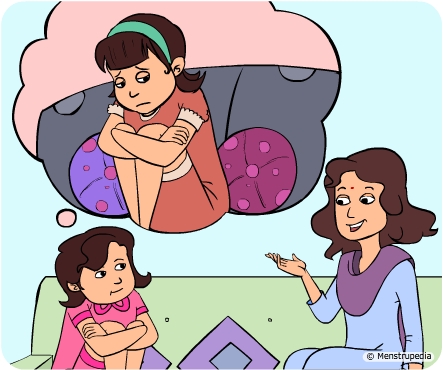
Scenario 3
When your fourteen years old asks you why she hasn't gotten her period yet, you can say: “Everyone's body develops in its own time. Your body is very different from those of your friends, and so your periods will come at its own specific time. So don't worry about it. I started at around 15, but my friend got hers much before, at 13. It tends to be the same in families, so you could get yours any time now.” This way, you can start by saying just enough to answer questions, then explain things briefly, and later move on to discuss details. Visit 'Talking to your daughter about menstruation' to know more about how you can make the conversation suitable and effective.
